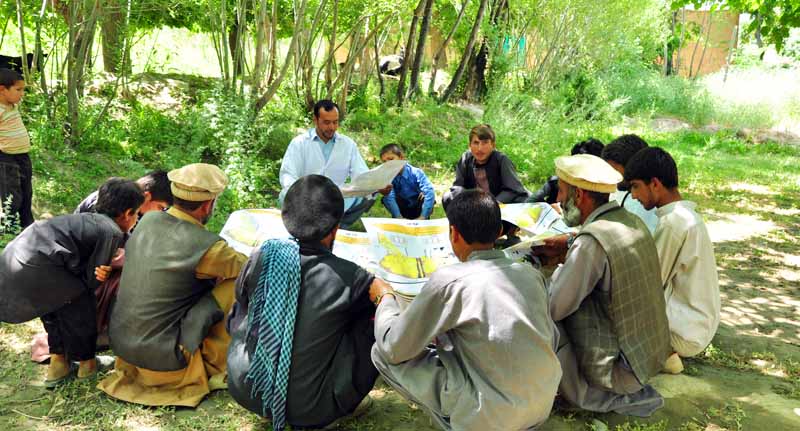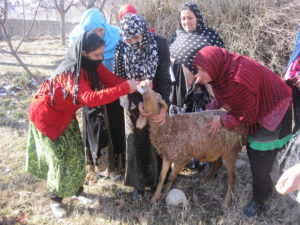Address:
- Street # 5 of Syloo, House # 152-153, District 3, Kabul, Afghanistan
- info.afg@dca-af.org
- Sun - Thu: 8.00 AM to 4.00 PM
Extension is an important element of the veterinary program of DCA. Creating awareness among the farmers is an essential prerequisite for a healthy livestock population. Extension also effectively promotes the services of the veterinary field units by increasing demand. From 2008, a special Extension Core Team has been established within DCA. This team has raised the extension activities to a new and professional level. Both VFU staff, as well as special extension workers, are engaged in extension activities. All DCA extension workers are mutually linked into a robust extension system and this extension is demand driven and needs based.

Extension techniques vary from simple demonstrations and one-time sessions, to monthly meetings of extension farmer groups. To reach an optimal result, a suitable approach is selected relevant for that particular community. All extension activities by DCA are based on the needs of the community involved. The extension sessions conveniently build on the knowledge already existing among the participants.
During the past years, One Health has become an increasingly important element of DCA’s extension programs. One Health links animal health, human health, and the environment together. One of DCA’s One Health Activities is to raise awareness on hygienic handling of animals and animal products. Moreover, DCA works together with public health officers to control the spread of zoonotic diseases (diseases that are transmitted from animals to humans).
To support VFU staff and extension workers, DCA developed various Herd Health Packages (HHPs). These packages offer the extension professionals the necessary information and tools to teach the livestock owners. The materials are prepared based on the needs of the livestock owners and address both literate and illiterate farmers.
To reach female famers as well, women-to-women extension is most appropriate. To this aim, DCA trains special Local Female Extension Workers (LFEWs). These LFEWs give part of their own time to spread extension messages on livestock topics to the women in their community. The innovative LFEW program was initiated in Herat and quickly expanded to most of DCA-supported provinces. DCA now supports over 200 LFEWs doing volunteer work by educating and supporting women’s groups. LFEWs receive training on extension topics focussed on female farmers. These include household hygiene, safe production and handling of animal products, poultry breeding and dairy production. The female farmers readily embrace the new knowledge and apply the learned techniques and approaches to their own livestock and farms. This enhances their self-confidence and social status. It often also increases the women’s contribution to the family’s income. LFEWs are therefore not only an indispensable component of the animal healthcare network, they are also important actors in the empowerment of women of Afghanistan.

